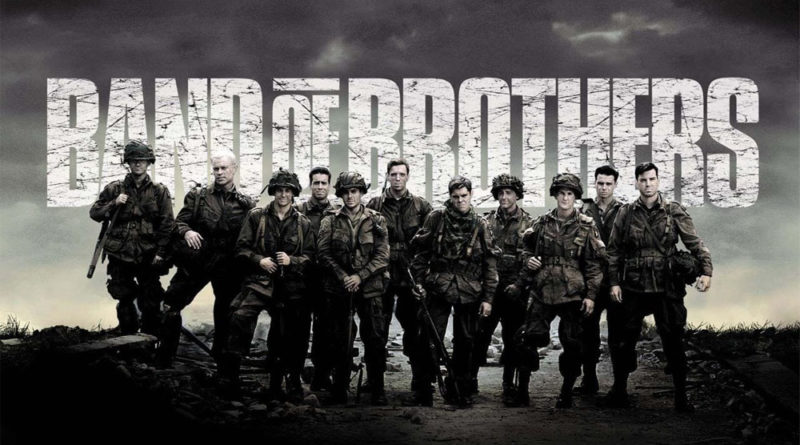Carentan
Last week we discussed what a leader looks like, with Lt. Winters as the primary focus. We observed how the values of Faithfulness, Integrity, Respect, and Excellence are important for a leader to develop and act out in their daily life. In this episode, we will discuss another important quality/value/characteristic of leadership; Courage. Which of course raises the question:
What does Courage Look Like?
In this episode, pay close attention to not only Lt. Winters, but also to the soldiers serving with him. Remember that leadership can occur in any rank and courage takes on many forms. Pay attention to the journey of Private Blithe and his interactions with Winters and the other soldiers. Is courage something you are born with...or is it something you develop or earn?
Discussion questions to consider...
- What does courage look like to you?
- In what ways must a leader be courageous?
- What is the relationship between courage and fear?
- Should leaders show fear?

I always enjoy an action-packed episode and the Battle of Bloody Gulch is considered one of the more violent and brutal confrontations in the WW2. Lt Winters encourages Blithe to be brave which is exactly what Blithe needs. Through this encouragement, Blithe gained confidence and became more courageous. I don’t think people usually engage in a singular courageous act. Courage grows over time as does confidence. Still, the dichotomy that exists here is between being courageous or being reckless. If you don’t understand the consequences of your actions, it can be reckless and this can get you into trouble. It is important to be courageous, and many courageous people fall in war. Unfortunately, when a confident Blithe takes the lead scout role, he gets shot and seriously wounded.
ReplyDeleteCourage coupled with integrity is essential in a leader’s decision-making process. It takes courage for a leader to make hard decisions with potentially high consequences, and decisions need to be made. Still, fears exist. I think it OK for others to understand that a leader fears potentially bad outcomes, and I also believe it is inspiring when a leader makes “tough” decisions in spite of those fears. Leaders need to be courageous in decision-making without being reckless. It shows a leader is invested and has integrity. Integrity is the important element here. A wise man once said: 'There are no perfect men in the world; only perfect intentions.’
I really appreciate your insights, Mike. I agree that courage coupled with integrity is essential. I have shared with my kids on several occasions that "Brave" people don't necessarily feel brave...they just do brave things in spite of their fears.
DeleteWell said Mike. I completely agree. All men have fear. It's how we rise above that fear while maintaining our integrity, which can be challenging for most however, at the end of the day "integrity is doing the right thing, even when nobody is watching." (C.S. Lewis). Words I try to live by.
ReplyDeleteJoshua 1 opens with the Lord speaking to Joshua as He is giving him the great assignment of leading the Israelites into the promised land. (There is a lot to this story.) The Lord tells Joshua to be strong and courageous. To me courage can be shown in many different ways. A leader can show courage when leading men into battle by moving from cover and concealment into the open in order to send a shoulder fired munition into the underbelly of an enemy tank. AMERICA! I also believe a leader can show courage by admitting when he's wrong or apologizing for letting his feelings get the better of him. The latter is something I'm well acquainted with. Many times, at my wife's behest, I've apologized to my kids after I reacted poorly to them out of anger or embarrassment. I've seen how humility has lead to reconciliation and restoration.
ReplyDeleteCourage is also shown when a leader stands for what he believes is right when the majority does not. Some may believe this describes integrity more than courage, but I suggest that it takes courage to maintain integrity.
Fear can serve a purpose. Fear is a feeling. God made us to have feelings. He does NOT intend for us to be lead by our feelings. I've heard it said best this way, "feelings are a great servant, but a terrible master." We know that fire can cause us injury, yet we don't banish heat, we find ways to manage it for our benefit without letting it hurt us. Therefore I believe the relationship between fear and courage must be managed in this way; we can be aware of fear yet choose to make courage the master.
To the last point, whether or not leaders should show fear...being full of fear or motivated by fear is not an inspiring leadership trait. I believe it can be healthy for a leader to communicate that they experience fear as long as they communicate that they choose to buck up/press on regardless. Again, it's not wrong to feel/experience fear. It is a mistake to allow fear manipulate us.